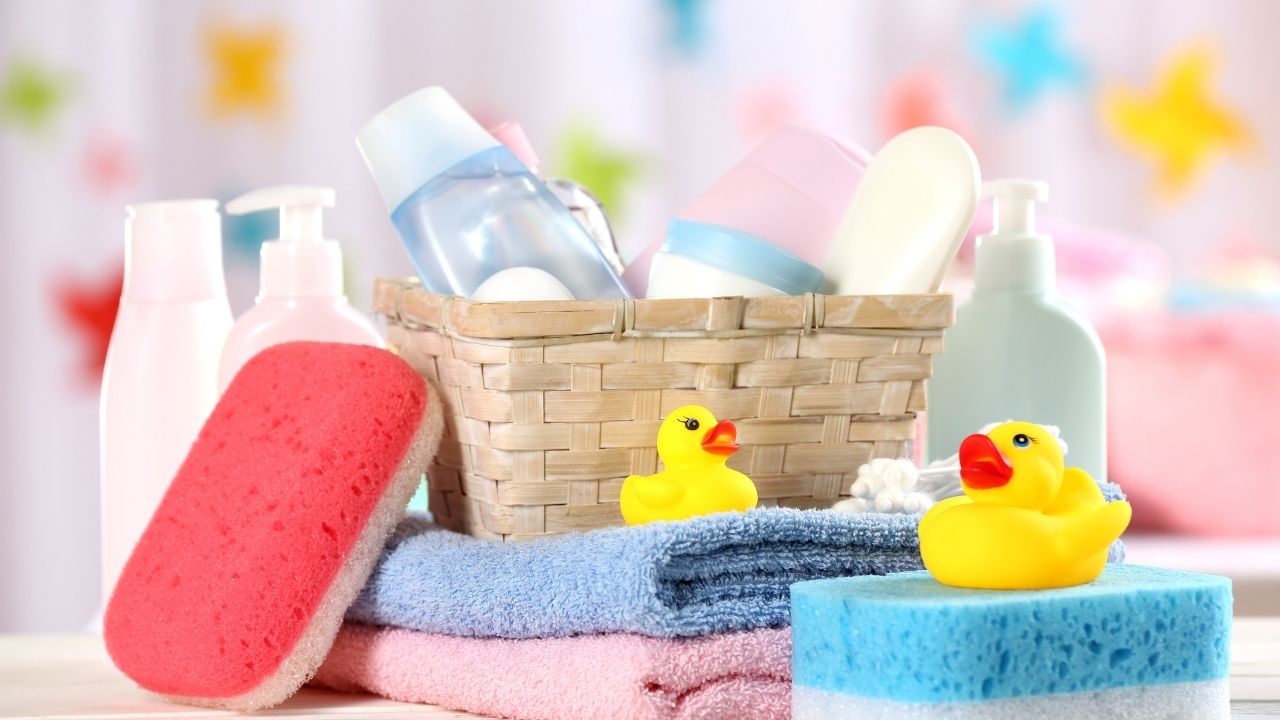As a parent, you want nothing but the best for your little one. From the moment they enter this world, you are constantly striving to provide them with all the love and care they need to thrive. However, despite your best efforts, there are some common health issues that can arise in babies that can leave you feeling helpless and worried. But fear not - your little fighter is stronger than you think!
From diaper rash to teething woes, colic to ear infections, and everything in between - this article will guide you through some of the most common health issues that babies face and equip you with tips on how to conquer them like a pro. Your baby may be small, but they are mighty! With the right knowledge and tools at your disposal, together you can overcome any challenge that comes your way. So let's dive in and learn how to support these brave little fighters as they navigate their first years of life.
Diaper Rash
You're probably familiar with diaper rash - it's that red, irritated skin around your baby's diaper area. It's a common issue that affects many babies, but don't worry! There are plenty of ways to prevent and treat diaper rash. Prevention tips include changing your baby's diaper frequently, using a barrier cream or ointment, and letting your baby go without a diaper for short periods of time to let their skin breathe.
If your little one does develop a case of diaper rash, there are also natural remedies you can try. Coconut oil is a great option as it has anti-inflammatory properties and is gentle on the skin. Applying breastmilk to the affected area can also help soothe and heal the rash. And remember, if the rash persists or looks severe, don't hesitate to contact your pediatrician for additional guidance and treatment options. Now onto the next common health issue - colic!

Colic
If you're a new parent feeling overwhelmed by your baby's incessant crying, don't worry - colic is a common issue that affects many infants and will eventually pass. Colic is characterized by frequent episodes of intense crying in otherwise healthy babies who are well-fed and cared for. Although the exact cause of colic is unknown, some studies suggest that it may be related to gastrointestinal discomfort or immature digestive systems. To help prevent colic, make sure your baby burps after every feeding and avoid overfeeding.
While colic can be frustrating for parents, there are several ways to soothe your little one. Try playing white noise or soft music to create a calming environment, and gently rock or bounce your baby in your arms or on an exercise ball. You can also try using a pacifier or providing gentle pressure on your baby's tummy with a warm towel. Remember that colic usually resolves on its own within three to four months, so hang in there! Up next: ear infections - another common health issue that affects young children.
Ear Infections
If your baby is experiencing ear pain, fever, or difficulty sleeping, these may be signs of an ear infection. It's important to seek medical attention for proper diagnosis and treatment options. Antibiotics are often prescribed to clear up the infection, but there are also natural remedies like warm compresses and essential oils that can help ease discomfort.
Signs and Symptoms
You may notice some signs and symptoms in your baby that indicate a health concern. It can be quite distressing to see your little one in discomfort, but staying vigilant of any changes in their behavior or physical condition is essential. Here are four common signs and symptoms to look out for:

Fever: A fever is often a sign that the body is fighting an infection.
Coughing: If your baby has been coughing persistently, it could be due to a respiratory infection or allergies.
Difficulty breathing: Rapid breathing, wheezing, or shortness of breath could indicate an underlying respiratory issue.
Changes in appetite: Refusing to eat or drink as usual could signify an illness or ear pain.

Prevention measures such as regular hand washing and keeping your baby away from people who are sick can help prevent some illnesses. However, if you notice any concerning signs or symptoms in your child, seeking medical consultation is crucial for proper diagnosis and treatment options.
Treatment Options
It's important to know the available treatment options when your baby shows signs and symptoms of a health concern. For common issues like colic, teething pain, or constipation, natural remedies may be helpful in relieving discomfort. These can include gentle massages, warm baths, or herbal teas. However, it's always best to consult with your pediatrician before trying any new treatments.
For more serious health concerns like ear infections or respiratory illnesses, medication options may be necessary. Antibiotics are commonly prescribed for bacterial infections while antiviral medications may be used for viral illnesses. It's important to follow the dosage instructions carefully and finish the entire course of medication to ensure full recovery. Your doctor will also advise you on how to manage any side effects that come with the medication.
As we move into discussing reflux in babies, it's important to note that this condition often requires a combination of both natural remedies and medication options for effective treatment.

Reflux
Feeling like a fire-breathing dragon, your little one may struggle with reflux as their stomach acid rises up like hot lava. Reflux is a common issue in babies where the muscles at the end of their food pipe are not fully developed, causing the stomach contents to flow back into the esophagus. While it can be distressing for both you and your baby, there are ways to manage and prevent reflux.
Here are some tips for Reflux Management:
- Feed your baby in an upright position to keep gravity on your side
- Avoid overfeeding your baby as this can increase reflux symptoms
- Burp your baby regularly during feedings to release any trapped air
And here are some Reflux Prevention Techniques:
- Keep your baby upright for 30 minutes after feeding
- Place a wedge under the head of their mattress to elevate it slightly
- Dress them in loose clothing that doesn't put pressure on their tummy
With these techniques and some patience, you can help alleviate the discomfort caused by reflux in your little one. But don't worry if it still persists - many babies outgrow reflux by their first birthday. Up next: teething - another milestone that may cause discomfort for your brave little fighter!

Teething
You're probably wondering what to expect when your little one starts teething. The first thing you might notice are the symptoms, which can include drooling, fussiness, and trouble sleeping. Teething typically begins around 6 months of age and can last up until their second birthday, but don't worry - there are plenty of soothing techniques to help ease your baby's discomfort during this time.
Symptoms and Timeline
By the time a baby reaches six months old, they may experience symptoms such as coughing, sneezing, and a runny nose. These are common signs of colds or flu that usually last for a few days to a week. However, if your little one continues to display these symptoms for longer than a week or exhibits fever, it is best to consult with your pediatrician right away.
The most common causes of colds in babies are viruses that can easily spread through contact with an infected person or surface. To prevent the onset of these illnesses, make sure you keep yourself and your baby's environment clean and sanitized at all times. Wash your hands regularly and avoid contact with people who may be sick. Additionally, breastfeeding can boost your baby's immune system and help them fight off infections naturally.
Soothing Techniques
Now that you know the symptoms and timeline of common health issues in babies, it's time to learn about some soothing techniques to help your little one feel better. Gentle massage is a great way to soothe your baby's discomfort. Use gentle but firm strokes on their back, tummy, and limbs to relieve tension and promote relaxation. You can also try white noise therapy by playing calming sounds like raindrops or ocean waves. This can help drown out any distracting noises that may be keeping your baby from sleeping or relaxing.

If your baby has a common cold, there are several ways you can ease their symptoms. Try using saline nasal drops or sprays to keep their nasal passages clear. You can also use a cool-mist humidifier to add moisture to the air and relieve congestion. Make sure your baby stays hydrated by offering plenty of fluids such as breast milk, formula, or water if they are over six months old. With these soothing techniques at hand, you can help your brave little fighter conquer any health issue that comes their way!
Common Cold
Feeling under the weather with a stuffy nose and cough? Don't worry, the common cold is a sneaky bug that can catch anyone off-guard. However, it's important to remember that babies are more susceptible to catching it due to their developing immune systems. As a parent or caregiver, there are some prevention measures you can take to lower the risk of your little one catching a cold.
- Keep their environment clean by wiping down surfaces regularly.
- Wash hands frequently and encourage others around the baby to do so as well.
- Limit exposure to sick individuals.
If your baby does happen to catch a cold, don't fret. There are natural remedies you can use to soothe symptoms and help them recover quicker.
- Use saline drops or spray in their nose to help clear congestion.
- Elevate their head slightly when sleeping to make breathing easier.
- Encourage plenty of fluids and rest.
Remember, while the common cold may seem like a minor illness for adults, it can be more serious for babies. Always consult with your pediatrician if you have any concerns or if symptoms worsen.

Frequently Asked Questions
How can parents differentiate between a common cold and a more serious illness in their baby?
When your little one is feeling under the weather, it can be difficult to know if it's just a common cold or something more serious. It's like trying to navigate through a dense fog with no map. But fear not! There are some signs of infection that you can look out for, such as a high fever, difficulty breathing, and lethargy. If you notice any of these symptoms or anything else that seems out of the ordinary, don't hesitate to seek medical advice. Remember, it's always better to err on the side of caution when it comes to your baby's health. Trust your instincts and reach out to a healthcare professional who can guide you through this difficult time.
Are there any natural remedies for diaper rash that parents can try before resorting to medication?
If your baby is suffering from diaper rash, there are natural remedies that you can try before resorting to medication. One effective remedy is coconut oil, which has anti-inflammatory and antimicrobial properties that can soothe and heal the skin. Simply apply a small amount of coconut oil to the affected area after each diaper change. Another option is cornstarch, which helps absorb moisture and prevent irritation. Sprinkle a little bit of cornstarch on your baby's bottom during each diaper change to keep the area dry and reduce friction between the skin and diaper. These natural remedies can be gentle yet effective ways to alleviate diaper rash in your little one.
Can teething cause any long-term dental issues for babies?
Teething can be a challenging time for both you and your baby. The discomfort that comes with it can lead to sleepless nights, endless crying, and countless trips to the pediatrician. But did you know that teething can also cause long-term dental issues if not managed properly? That's right! Poor oral hygiene during teething can lead to decay, infections, and even improper alignment of teeth in the future. So while it may seem like just another phase to endure, taking care of your baby's oral health during teething is crucial for their overall well-being. Don't worry though, there are plenty of ways to help soothe their discomfort and maintain good oral hygiene practices.
How can parents help their baby cope with colic symptoms during the night?
If your baby is experiencing colic symptoms during the night, it can be a difficult time for both you and your little one. However, there are some infant sleeping techniques that may help soothe them back to sleep. Try swaddling them tightly in a cozy blanket or using a white noise machine to create a calming environment. Additionally, there are soothing products for colicky babies such as gas drops or gripe water that may provide relief. Remember to always talk to your pediatrician before trying any new remedies. It's important to stay patient and remain calm during this phase of your baby's development, knowing that with time and support they will overcome these common health issues.

Are there any preventative measures parents can take to reduce the likelihood of their baby developing reflux?
Preventing reflux in babies can be achievable with some simple yet effective measures. Imagine your little one sleeping soundly without any discomfort caused by acid reflux. One way to reduce the likelihood of your baby developing reflux is by breastfeeding exclusively for the first six months. Breast milk helps strengthen their immune system and reduces the chances of them getting sick, which could lead to developing GERD or gastroesophageal reflux disease. Additionally, burping techniques can help release any trapped air and prevent reflux from occurring during feeding times. By gently patting or rubbing their back after every feed, you can aid in proper digestion and minimize the likelihood of reflux symptoms appearing later on.
Conclusion
You've learned about some of the common health issues that babies face and how to help them overcome these challenges. Remember, diaper rash can be prevented by keeping your baby clean and dry, using a barrier cream, and changing their diaper frequently. Colic may be alleviated by trying different soothing techniques such as swaddling or white noise.
Ear infections can be treated with antibiotics if necessary, but many cases will resolve on their own. Reflux can often be managed through feeding changes and medication prescribed by your pediatrician. Teething discomfort can be eased with teething toys or a cold washcloth.
Finally, it's important to remember that the common cold is just that - common. While it may seem scary when your little one is sick, know that they are strong and resilient. In fact, did you know that the average child gets six to eight colds per year? That means your brave little fighter has already conquered this challenge before - and they'll do it again! Keep up the good work taking care of your precious bundle of joy.

.png)





